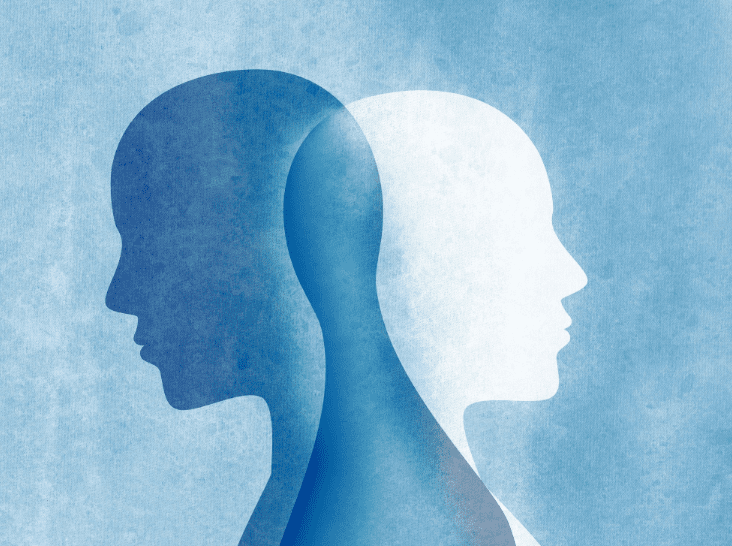Taking care of our minds is just as important as looking after our bodies, but sometimes we forget to do it. Keeping your mental health in check means you feel good, handle problems better, and enjoy life more. Let’s talk about easy ways to make sure our minds stay healthy every day.
What Is Mental Health?

Find out ‘What Is Mental Health’ with our easy guide. We talk about how important it is to feel good in your mind and how to deal with tough times. Thisi guide shows you simple ways to look after your mental health every day. When we talk about mental health, we’re talking about how we feel, think, and act. It’s about being happy, feeling good about ourselves, and getting along with others. Good mental health means we can deal with life’s ups and downs, make good choices, and live life to the fullest. Join us to learn ‘What Is Mental Health’ and start feeling better inside your head.
Understand the Concept of Mental Health:

We show you why taking care of your mind is important and how it helps you feel happy and deal with problems. Concept of mental health is all about keeping your thoughts and feelings healthy. Our tips are simple and will help you understand the concept of mental health better. Start looking after your mind today by getting to know the concept of mental health.
If you’re asking how to understand or take care of your mental health based on the concept of mental health, here’s a simple explanation and some easy steps to follow:
The concept of mental health means how we think and feel, and how we deal with things happening in our life. It’s about being happy, not being too stressed, and getting along with others. It’s important because it affects everything we do, from how we handle problems to how we make friends.
How to Take Care of Your Mental Health:
Talk About Your Feelings: It’s okay to tell someone if you’re feeling sad or stressed. Talking can help you feel better.
Stay Active: Doing things like walking, playing a sport, or dancing can make you feel good and help your mind.
Eat Healthy Foods: Eating lots of fruits, vegetables, and some foods like fish or nuts can make you feel better.
Take Breaks: If you’re feeling overwhelmed or tired, it’s okay to take a little break. Do something you enjoy or just relax for a bit.
Hang Out with Friends or Family: Spending time with people you like can make you feel supported and happy.
Sleep Well: Try to go to bed and wake up at the same time every day. Good sleep helps your brain work better.
Try New Things: Learning a new hobby or skill can make you feel good about yourself.
Limit Screen Time: Spending too much time on your phone or computer can make you feel tired or stressed. Try to do other things you enjoy.
Be Kind to Yourself: Remember, it’s okay to not be perfect. Be nice to yourself and know that everyone has tough days.
Ask for Help: If you’re feeling really sad or stressed and can’t feel better, it’s okay to ask a grown-up for help. Sometimes we need a little extra support.
Taking care of your mental health is about doing little things that make you feel good and help you deal with life’s ups and downs. It’s like taking care of your body by eating right and exercising, but for your mind. Start with one or two things from this list and see how they make you feel.
Moving Your Body for a Better Mood:
Moving around and getting some exercise are great for your mental health. You don’t have to run a marathon; even a short walk, dancing in your living room, or playing a game outside can make you feel happier. When we move, our bodies release chemicals that make us feel good and help chase away feelings of stress or sadness.
Yoga for Mental Health:

Yoga is a fun way to help your mind relax and feel good. It’s about slow movements, breathing deeply, and quieting your thoughts. Doing yoga can help you feel less stressed, more peaceful, and happier. It’s like giving your mind a mini-vacation!
Doing Yoga for Mental Health is a great way to help your mind feel better. Here’s how to get started in easy steps:
Find a Quiet Place: Pick a spot where you can relax without any noise. This helps you do Yoga for Mental Health without distractions.
Make Time for Yoga: Doing Yoga for Mental Health works best when you do it often. Try to do it at the same time each day, like in the morning or before bed.
Start with Breathing: Before you start moving, sit and breathe deeply for a few minutes. This helps get your mind ready for Yoga for Mental Health.
Simple Moves: Begin with easy poses. Poses like the Child’s Pose or the Cat-Cow Stretch are good for starters. These help your body loosen up and make your mind calm.
Focus on Now: While doing each pose, think about your breathing and how the pose feels. This helps your mind stay in the present, which is a big part of Yoga for Mental Health.
End Calmly: Finish with a pose where you lie down, close your eyes, and relax every part of your body. This lets your body and mind take in the good effects of your Yoga for Mental Health session.
Think About How You Feel: After you’re done, see how different your body and mind feel. This helps you see the good changes Yoga for Mental Health brings.
Yoga for Mental Health is not just about doing poses; it’s about making your mind quieter and happier. It’s a good way to deal with stress and make yourself feel more peaceful every day.
Types of Mental Health Disorders:

When we talk about “types of mental health disorders,” we mean the different ways people can have trouble with their mental well-being. Here are some main types:
Anxiety Disorders: This is when you feel super worried, nervous, or scared about things more than usual. It’s like having a fear that doesn’t go away and can get worse over time. People might have panic attacks, feel stressed all the time, or be afraid of specific places or situations.
Mood Disorders: This includes feeling really sad (depression) or having extreme ups and downs in mood (bipolar disorder). If someone has a mood disorder, they might feel super happy and full of energy at times and then suddenly feel very sad and lose interest in everything.
Psychotic Disorders: This type makes it hard for people to understand what’s real and what’s not. Schizophrenia is one example, where someone might hear voices or see things that aren’t there, or believe things that aren’t true.
Personality Disorders: These are patterns of thinking, feeling, and behaving that are very different from what society considers usual or normal. It can make it hard for people to get along with others. One example is borderline personality disorder, where someone might have very intense emotions and find it hard to maintain stable relationships.
Eating Disorders: This type is about having big problems with food, eating, and body image. Like, someone might eat way too much, eat very little, or be really unhappy with their body size.
Addiction and Substance Use Disorders: This is when someone can’t stop using something, even if it’s causing them harm. It could be alcohol, drugs, or even activities like gambling.
Understanding these “types of mental health” issues is important because it helps us know when we or someone we care about needs help. There’s no shame in having any of these problems; the most important thing is to get support and treatment to feel better.
By looking after all these components of mental health, we can help make sure our minds stay healthy. This means doing things like talking about our feelings, spending time with friends or family, facing problems in positive ways, taking care of our bodies, and understanding ourselves better. Taking care of the components of mental health is really important for feeling happy and healthy overall. By trying out these simple tips, you can help keep your mind healthy and happy. It’s all about taking small steps every day to feel good and enjoy life. Let’s make mental health care a part of our everyday routine!

